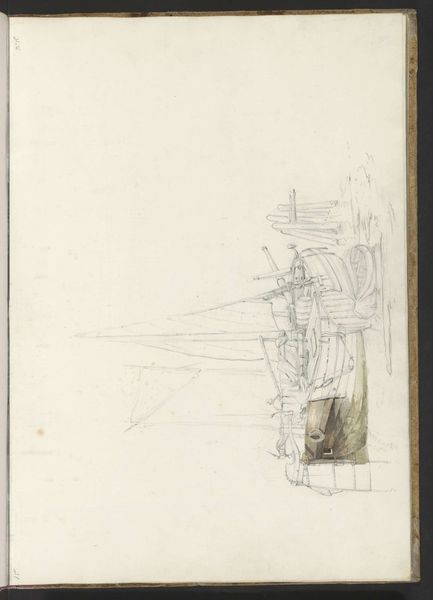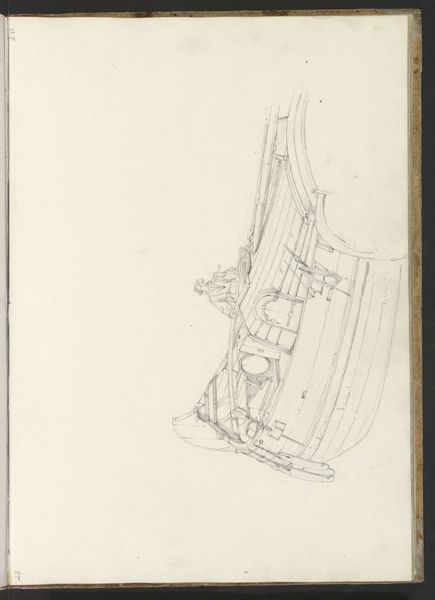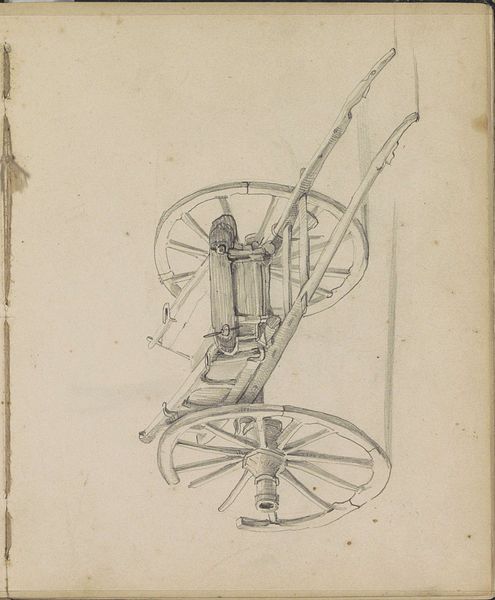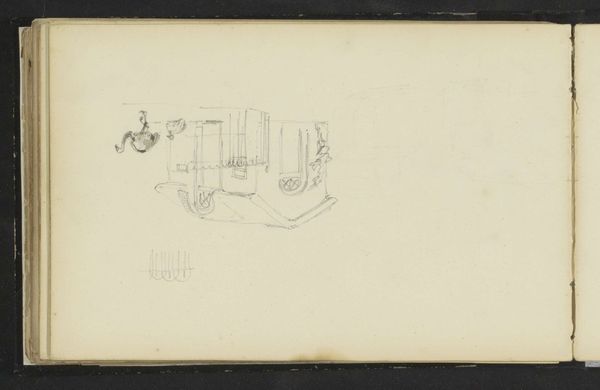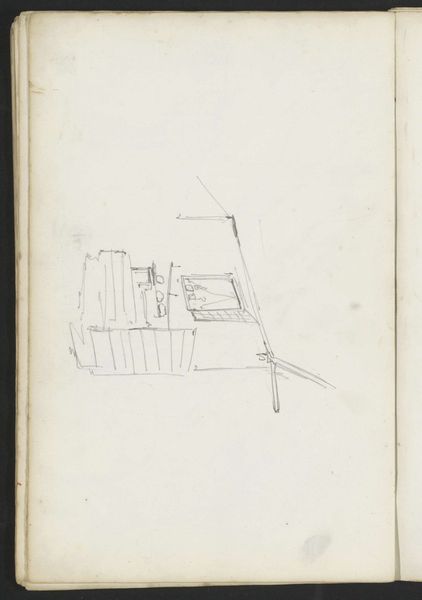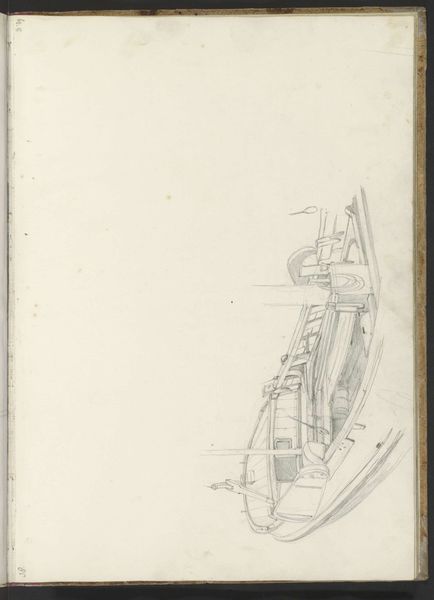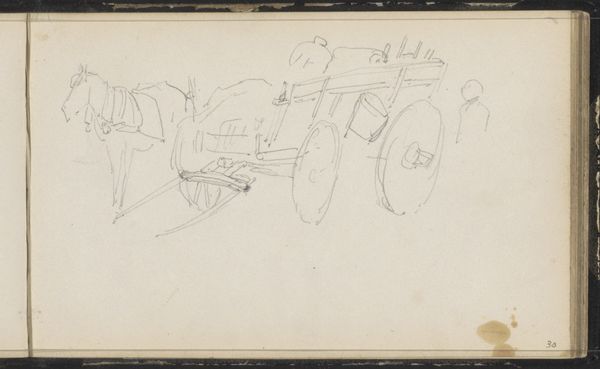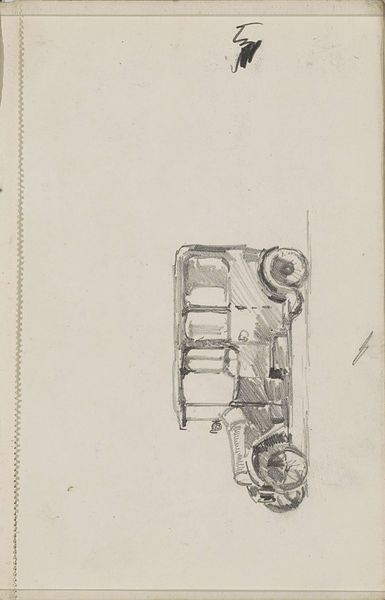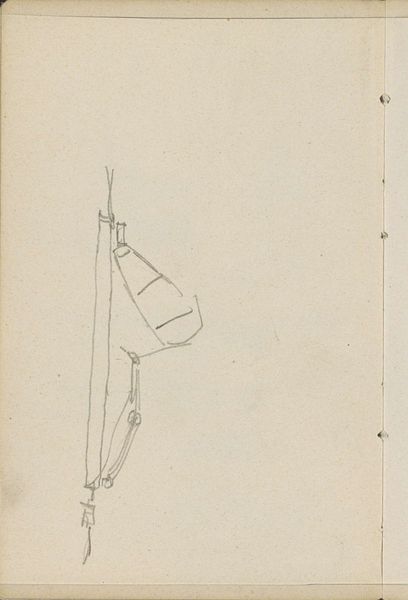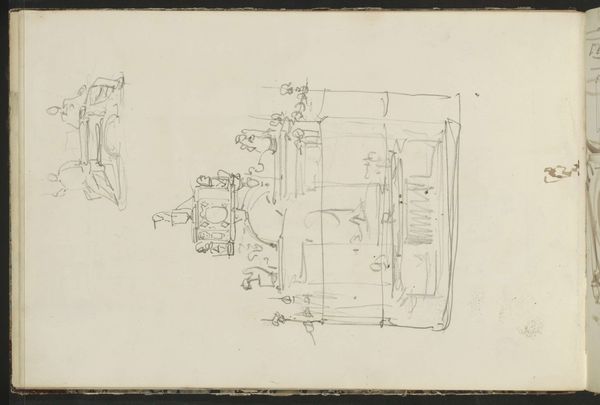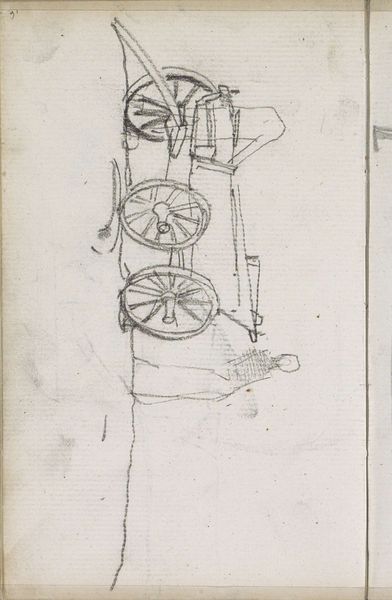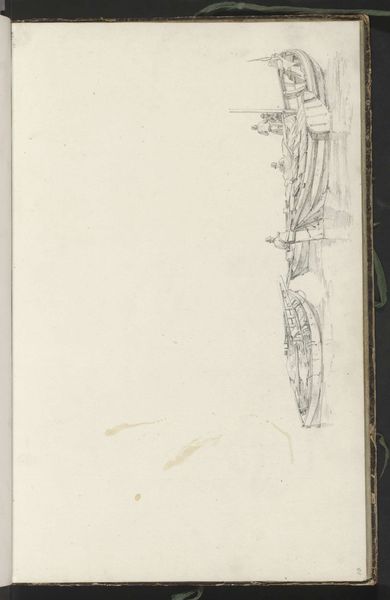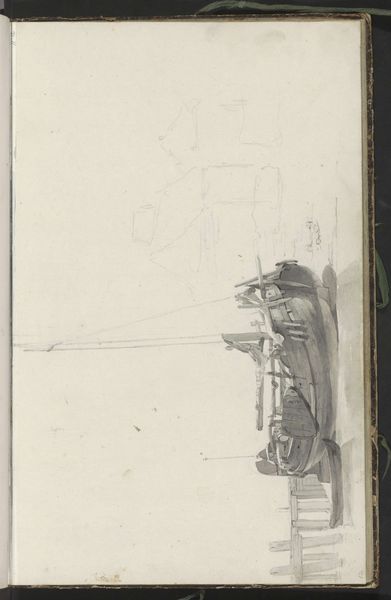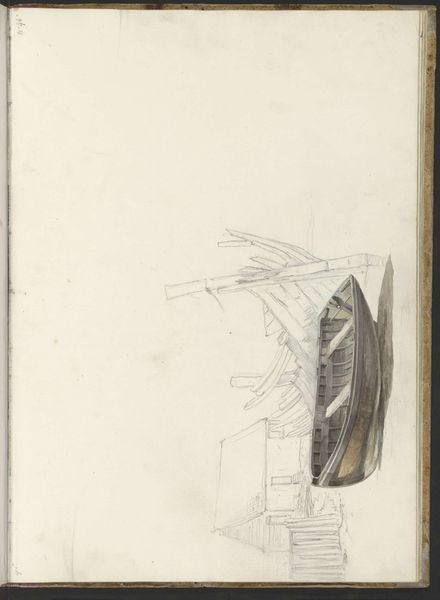
drawing, pencil
#
drawing
#
landscape
#
romanticism
#
pencil
Copyright: Rijks Museum: Open Domain
Here we see a sketch by Johannes Christiaan Schotel, made sometime in the early 19th century, depicting a sailboat and a standing figure. The sailboat, a powerful emblem of navigation and exploration, evokes humanity's eternal quest to conquer the unknown. The single figure standing in the boat takes on a symbolic dimension, echoing the archetypal wanderer or explorer. The symbol connects to the ancient Greek myths of seafaring heroes like Odysseus, whose journeys represent the human spirit's resilience and desire for discovery. Yet, in Schotel's rendering, this grand narrative is tempered by the sketch's simplicity. The stark lines and absence of color create a sense of solitude, mirroring the introspection that often accompanies journeys, both literal and metaphorical. The sea, typically a symbol of the unconscious, adds a layer of psychological depth, suggesting the figure is navigating not just water, but the inner landscape of the self. The motif resurfaces time and again, from the Viking longships to contemporary art installations, each iteration echoing and transforming the original themes of adventure, risk, and self-discovery.
Comments
No comments
Be the first to comment and join the conversation on the ultimate creative platform.
